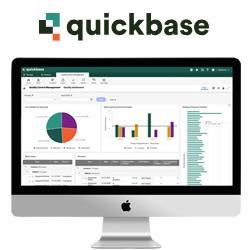As Hurricane and Fire Season Begin, Clean Energy Group and Meridian Institute Report Outlines How to Provide Resilient Backup Power to Medically-Vulnerable Households
First-of-its kind analysis shows that resilient battery storage technologies can provide reliable backup power for critical home medical equipment
Montpelier, VT - June 4, 2019 - June marks the start of hurricane and fire season for millions of Americans. Following the lessons of Hurricane Maria in Puerto Rico and the Camp Fire in Northern California, public health professionals should recognize that it's past time to address the dangers faced by more than 2.5 million Americans - primarily senior populations - when power outages due to storms, fires, or other disasters impact the home medical devices that the medically vulnerable need to survive.
How battery storage and solar technologies can mitigate this expanding risk is examined in a new report from two national nonprofits, Clean Energy Group and Meridian Institute: "Home Health Care in the Dark: Why Climate, Wildfires and Other Risks Call for New Resilient Energy Storage Solutions to Protect Medically Vulnerable Households from Power Outages." The report details the risks associated with power outages for individuals reliant on electricity for in-home medical and mobility equipment and provides a set of recommendations to improve access to resilient power technologies.
"Until now, emergency backup power options for households reliant on electricity-dependent medical equipment were limited," said lead report author Marriele Mango, a program associate at Clean Energy Group. "Battery storage is a new solution that could fundamentally change how medically vulnerable households prepare and prevail through an outage. The public health and energy fields must start working together to ensure that this high-risk population is protected with these new emerging energy technologies in the event of an outage."
Annie Shapiro, a program associate at Meridian Institute, added insight into the urgency for solutions. "Across the country, we are seeing a growing population of electricity-dependent individuals and an increase in the duration and frequency of power outages," said Shapiro. "These factors necessitate an innovative approach to backup power that could improve resilience among vulnerable individuals that are most affected by the impacts of power outages. This report outlines opportunities to integrate reliable, clean energy backup power into public and community health. Only if we take these steps now can we deliver benefits to vulnerable individuals through improved resilience and electric bill cost savings over time."
"We're eager to explore ways we can support community resilience in the face of increasing natural disasters," said Mike Painter, senior program officer at the Robert Wood Johnson Foundation, the nation's largest philanthropy dedicated solely to health, which supported this work. "We need new solutions to ensure that when the power goes out, communities can sustain the health and well-being of all their residents."
State and local governmental agencies, utilities, and even insurance providers should recognize battery storage and solar as critical to life support during a disaster and provide opportunities for medically vulnerable, electricity-dependent individuals to access resilient systems. Among the recommendations for policymakers and public health professionals detailed in the report are the following:
• funding research into energy security and resilience for home health care beneficiaries;
• developing better data that accurately portrays the size and scope of the electricity-dependent population;
• collaborating with healthcare providers and home health agencies;
• fostering utility-administered residential battery storage programs; and
• encouraging legislators to expand Medicare coverage to include battery storage.
The need for battery storage solutions is especially critical today as more people opt to receive medical care at home, rather than in a nursing home or hospital. As natural disasters increase in frequency and severity, access to resilient backup power in the event of an outage can be a matter of life or death for these residents. For example, health care complications, including outage-related issues like medical device failure, accounted for almost one-third of the estimated 4,645 deaths in the three months following Hurricane Maria, which devastated Puerto Rico and other Caribbean islands in 2017.
Support for this report was provided by the Robert Wood Johnson Foundation. The views expressed here do not necessarily reflect the views of the Foundation.
The report and a 2-page fact sheet are available at: https://www.cleanegroup.org/ceg-resources/resource/battery-storage-home-healthcare/
Clean Energy Group will be hosting a free webinar on June 27 to discuss the findings of this report. Details at: https://www.cleanegroup.org/webinar/battery-storage-home-healthcare/
# # #
About Clean Energy Group
Clean Energy Group is a leading national, nonprofit advocacy organization working on innovative technology, finance, and policy programs in the areas of clean energy and climate change. The Resilient Power Project, a joint initiative of Clean Energy Group and Meridian Institute, is designed to help states and municipalities with program and policy information, analysis, financial tools, technical assistance, and best practices to speed the deployment of clean, resilient power systems in their communities. For more information, visit www.cleanegroup.org and www.resilient-power.org.
About Meridian Institute
Meridian Institute builds understanding, guides collaboration, and drives action to address our world's complex challenges. We are a mission-driven, nonprofit consultancy that has helped our clients and partners develop and implement solutions to complicated, often controversial problems—big and small, global and local—for over two decades. We have deep expertise on community resilience and disaster risk reduction and are pleased to partner with the Clean Energy Group on this important topic. For more information visit www.merid.org.
CONTACT:
Samantha Donalds
Communications Coordinator
Clean Energy Group
Phone: 802-223-2554 x204
samantha@cleanegroup.org
Featured Product

